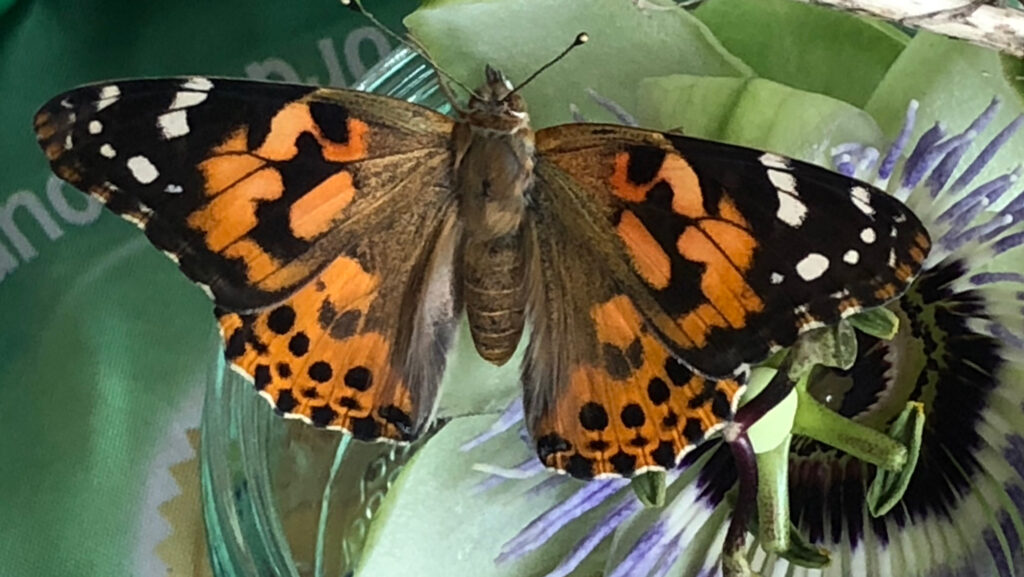Farm sector dismisses neonics link to butterfly demise
 Butterfly Conservation says it has seen the worst summer for species including the Painted Lady © Philip Clarke/MAG
Butterfly Conservation says it has seen the worst summer for species including the Painted Lady © Philip Clarke/MAG The farming industry has rejected claims that growers are chiefly responsible for a major decline in UK butterfly numbers this year, insisting record-breaking wet weather is more to blame.
Wildlife charity Butterfly Conservation said its Big Butterfly Count had pointed to a 50% fall in numbers counted this year compared to 2023 figures.
See also: Environmental watchdog to probe Defra’s neonics exemptions
This, it said, is the lowest count in the 14-year history of the survey and the worst summer for species including the Common Blue, Small White and Painted Lady.
81% of species showed a decline in numbers compared to 2023, the organisation reports.
Butterfly Conservation lays the blame at the door of neonicotinoids, a pesticide used by farmers for protecting sugar beet from aphid infestations.
It is pressing the Labour government to completely ban their use.
Climate
But NFU environment forum chair Richard Bramley described the inclusion of neonicotinoids in this debate as “unhelpful and misleading’’.
“There is no clear scientific evidence to show this pesticide use in the decline of butterfly numbers,’’ he said.
The UK had some of the most stringent pesticide regulations in the world, he added, and this controlled any potential impact or risks.
Dave Bench, chief executive officer of CropLife UK, which represents the UK’s plant science industry, added that habitat loss, climate change, and land-use changes are much larger drivers of butterfly decline.
“What is not mentioned by Butterfly Conservation in their report is the likely impact of the poor weather we have experienced this year,” he said.
Banning neonicotinoids use would make “no practical difference”, said Mr Bench, because these have been almost eliminated from use in the UK since 2018 anyway.
“Only emergency authorisations have been granted for limited specific uses, such as for sugar beet crops in 2021, 2022, and 2023, under strict conditions to manage virus outbreaks that threaten crops,” he said.
The 2022 report, “Insect Decline and UK Food Security”, published by the Science, Innovation and Technology Committee, acknowledged that, whilst plant protection products are often suggested as a factor in insect decline, it was without strong supporting evidence.
The evidence for the impact of climate change and habitat loss is, however, compelling, according to that report.
Petition
Despite this, Butterfly Conservation has launched a new petition and open letter to Defra secretary Steve Read calling for neonicotinoids to be banned “permanently and without exception”.
Dr Richard Fox, head of science at Butterfly Conservation, said a third of the species recorded in the Big Butterfly Count had their worst year on record.
“Butterflies are a key indicator species; when they are in trouble we know that the wider environment is in trouble too.
“Nature is sounding the alarm call. We must act now if we are to turn the tide on these rapid declines and protect species for future generations.”

